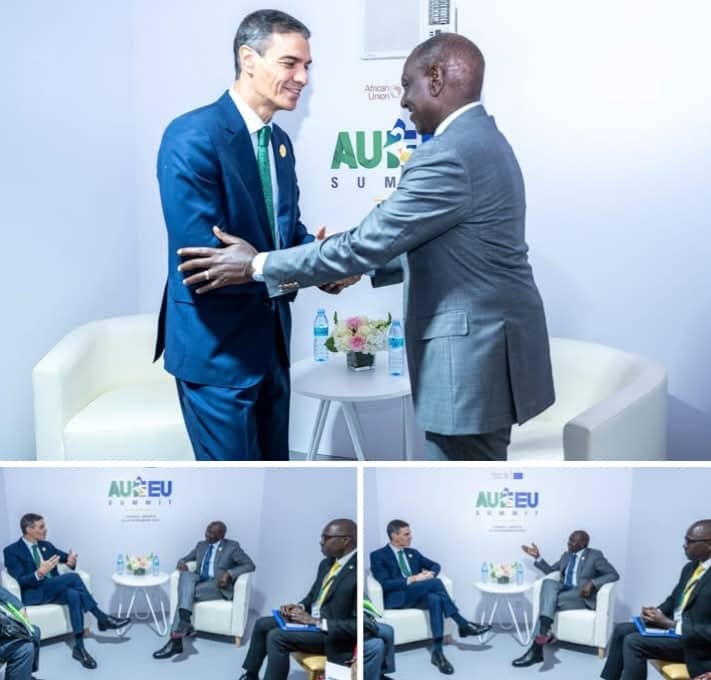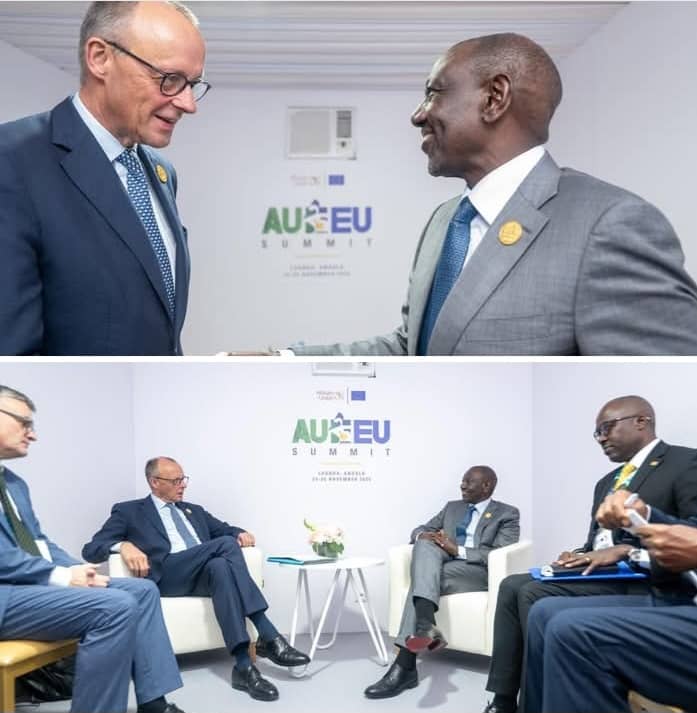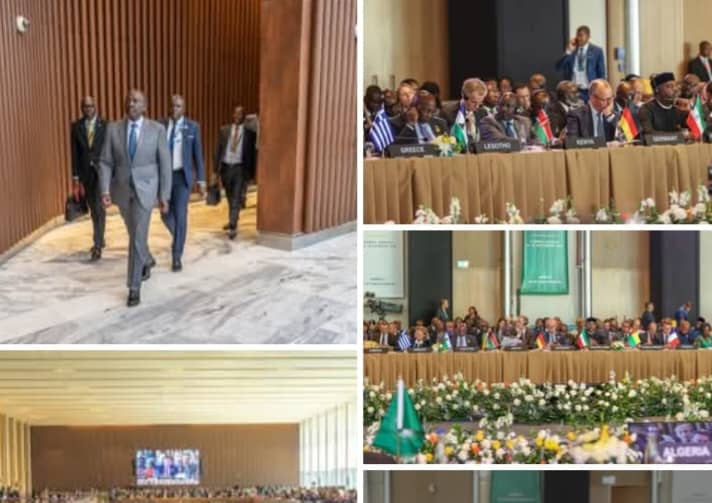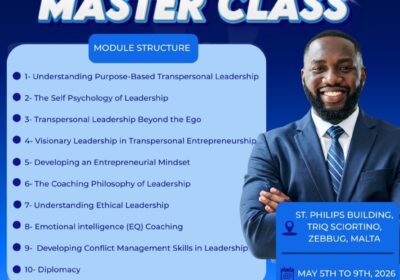Ruto Attends G20 in South Africa, Deepens Ties with Europe, Others for Economic Transformation.
By Raymond Enoch
President William Ruto’s participation at the 2025 G20 Summit in South Africa became a calculated diplomatic offensive to deepen Kenya’s partnerships with key European powers, as he used the sidelines of the gathering in Luanda, Angola, under the 7th African Union–European Union framework, to sell Kenya’s Bottom Up Economic Transformation Agenda and rally support for global governance reforms.

On the margins of the summit, Ruto held a series of high-level bilateral talks with European leaders, positioning Kenya as a reliable anchor state for investment, innovation and reform on the African continent. In his engagement with Spain’s Prime Minister Pedro Sánchez, the President pushed to expand diplomatic ties with a sharp focus on trade and investment. He underlined Kenya’s keen interest in leveraging the partnership to support Spanish companies already active in the country and to attract new investors into sectors that sit at the heart of his economic transformation vision: infrastructure expansion, water and irrigation, and energy generation. These areas, he stressed, are central to unlocking jobs, boosting productivity and opening new prospects for ordinary Kenyans under the Bottom Up Economic Transformation Agenda.
Ruto’s message to Madrid was clear: Kenya is open for business and Spain’s private sector has a privileged entry point into one of Africa’s most dynamic economies. By tying Spanish engagement directly to BETA, he framed diplomacy not as protocol but as a practical tool to deliver roads, power, food security and livelihoods.

The Kenyan leader’s talks with German Chancellor Friedrich Merz further underlined the strategic depth of Nairobi’s outreach to Europe. Ruto described Kenya and Germany as partners bound by strong cooperation in trade, investment, education, clean energy and labour mobility. He highlighted the Bilateral Labour Agreement between the two countries as a model that has made labour migration more orderly and transparent while creating new opportunities for Kenyan workers and addressing labour gaps in the German market. This structured labour mobility, he argued, fits seamlessly into his domestic agenda by offering Kenyan youth a legitimate pathway to skills, remittances and global exposure.

At the same time, Ruto welcomed the growing presence of German companies in Kenya’s economy and reiterated his government’s commitment to working closely with them, particularly in sectors like renewable energy and industrial development. Beyond bilateral ties, their discussion delved into the architecture of the global system itself. The President voiced appreciation for Chancellor Merz’s support for reforms of the United Nations Security Council and the international financial system, reforms he said are necessary to build a fairer and more stable global order in which Africa is no longer treated as a peripheral actor but as a co-author of global rules.
In his meeting with French President Emmanuel Macron, Ruto reinforced the long-standing cordial relations between Kenya and France, describing them as driven by shared interests and a commitment to expanding opportunities for their peoples. The two leaders reviewed preparations for the Africa–France Summit scheduled for Nairobi in May 2026, an event expected to bring together Heads of State, business leaders, young entrepreneurs, civil society, investors and creative artists from across Africa and France. For Ruto, the Nairobi summit will be a showcase of Africa as a continent of innovators, exporters and creative talent, not merely a destination for aid or crisis response.
He cast the upcoming gathering as a platform for new partnerships that will connect African enterprise with French capital and technology, while amplifying the continent’s image as a source of solutions and ideas. The President also commended Macron for backing Africa’s call to reform the UN Security Council, specifically the demand for two permanent seats for Africa with full rights, including the power of veto. Such a shift, he insisted, would mark a historic correction to decades of underrepresentation and provide Africa with genuine influence over decisions that directly affect its peace and development.
Threaded through his engagements with Sánchez, Merz and Macron was a broader plea for deeper collaboration between African financial institutions and the European Union, including EU investment in African and regional development banks. Ruto argued that such partnerships would lower the cost of capital for African countries, strengthen the continent’s capacity to finance its own priorities and reduce vulnerability to the shocks of an unequal financial system.
By the time the G20 Summit curtain fell in South Africa, Ruto had used every available corridor, meeting room and photo-op not just to reaffirm friendships but to press a coherent agenda: mobilise European investment into key sectors of Kenya’s economy, champion structured labour mobility, and align influential European capitals behind Africa’s demand for a reformed, representative global order. In doing so, he signalled that Kenya’s foreign policy is no longer content with symbolic presence at global forums. It is now a vehicle for “bottom-up diplomacy” — where every handshake, every communique and every summit corridor conversation is expected to translate into concrete benefits for the hustler at home.







